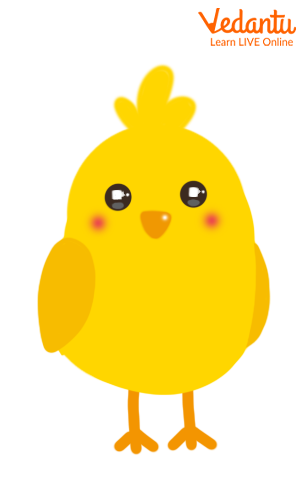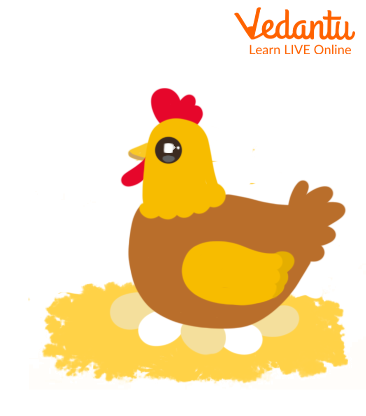




Types and Meanings of Hen Sounds
Hens have been part and parcel of human civilization. These domesticated fowls have been a part of the farms since 4000 BC. Humans domesticated wild fowls for eggs and meat. Hence, learning the hen sounds has been a necessary part of daily life. Kids will find out what a hen sound means and how it can be represented using an English word.
What is a Hen Sound?
The sound made by a hen is called a hen sound. It is a noise that a hen makes with its throat by exhaling air. It is interpreted as clucking in English. Apart from clucking, hens make different types of sounds. All such varieties of sounds have different meanings.
Types of Hen Sounds
Kids love to see hens pecking on the ground for food and clucking. The clucking sounds are made frequently with a distinct interval between every sound to communicate with the other hens in a brood. Let us find out all the meanings and interpretations of hen sounds first.
Clucking
This hen sound name represents a clucking sound made by hens or their mothers. They do it to communicate with other hens and chicks. These cluck cluck sounds are made with specific frequencies to call and keep the chicks closer to the mother. It has been found that mother hens also make such sounds when the chicks are inside laid eggs.
Low Murmuring
This low-pitch murmuring sound is made when chickens are together and feel safe. When they graze on the ground, this murmuring sound is made for self-content and assurance of safety. There is no specific time when hens make such sounds. They also make such sounds when exploring an enclosure.
Tuk Tuk Sounds
Chickens make tuk-tuk sounds when they are foraging. This sound is also used to communicate with the younger hens and chicks. It is kind of a commanding system that mother hens use to tell the chicks to peck in particular places.
High-pitch Calling
As the name suggests, a high-pitch sound is made when a hen is threatened or senses danger. It is similar to the shrieking or screaming of a human. When any predator is approaching and a hen has detected it, it will scream. In fact, hens scream when they are under attack to raise an alarm and alert the farmer.
Cackling
Cackling is an interesting sound made by a hen that has just laid an egg. It is similar to buk buk buk ba-kaak. It is the sound of content, as well as, a notification to the rest of the brood regarding the new egg. This is also a call for the rest of the hens to come together and celebrate.
Chirping
Chirping is a chick sound made by the young ones. This sound is specific to the young chicks that have just hatched from the eggs. It is quite soft and very heart-warming to listen to.

A Chick Chirping
Chattering
When in a coop, all the chickens will chatter with each other to communicate. It is similar to sharing the events of a day. They also greet each other in this way.
Growling
This hen sound is grumpier and more serious than the other sounds. Hens that are brooding will be aggressive and make such sounds. They also do it before picking up a fight with other hens.

A Hen Brooding
Crowing
It is the common sound we have heard when roosters crow early in the morning. It is a wake-up call for the hens to rise and start catching worms.
Tips for Parents
Explain to kids that a group of chickens is called a brood. Describe the sounds with audiovisual files so that the kids can easily differentiate between such sounds and explain why they make such sounds.
FAQs on Types of Hen Sounds
1. What is the sound of a hen?
The common sound made by a hen is clucking. It is a sound they make throughout the day while eating or calling other hens.
2. Why does a rooster crow?
A rooster crows in the morning during the sunrise to alert the hens in the brood. It is first done by the head rooster.
3. Are hens social animals?
Hens are social animals. They live together in a brood and take care of each other.















